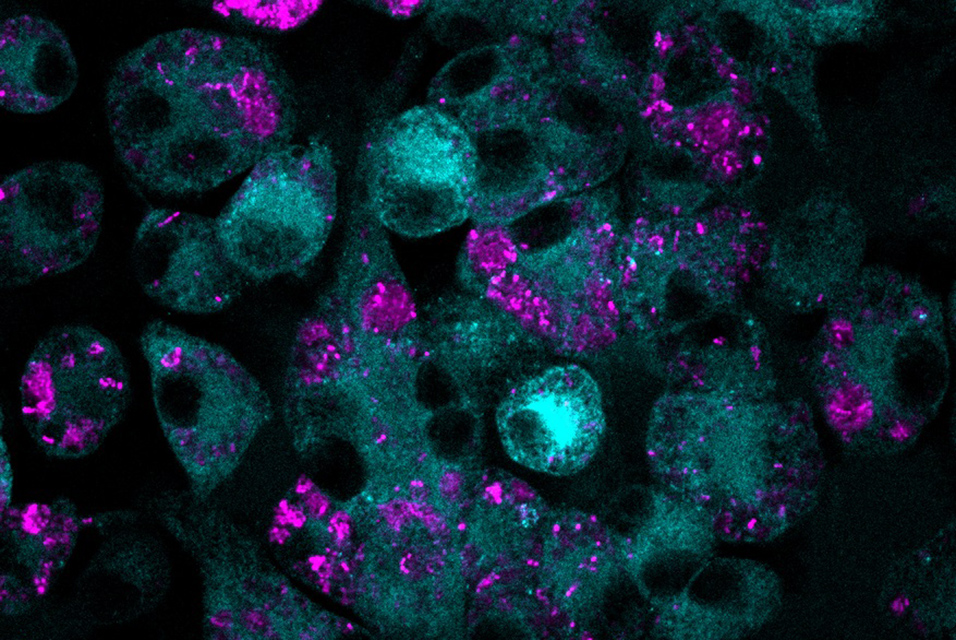CAMBRIDGE, MASS.- Researchers have developed a novel combination therapy using the anticancer agent mitoxantrone (MTX), together with an antibiotic, vancomycin, for treating bacteria that are resistant to the vancomycin, which are also known as vancomycin-resistant Enterococcus faecalis or VRE. The therapy uniquely targets both VRE and the host, stimulating the host immune system to more effectively clear bacterial infections and accelerate infected wound healing. The work was led by scientists at the Antimicrobial Resistance (AMR) interdisciplinary research group at Singapore-MIT Alliance for Research and Technology (SMART),
MIT’s research enterprise in Singapore, in collaboration with Singapore Centre for Environmental Life Sciences Engineering, Nanyang Technological University, MIT, and University of Geneva.
Antimicrobial resistance is a significant global health concern, causing 4.95 million deaths from infections associated with or attributed to antimicrobial resistance in 2019 alone. By 2050, the Asia-Pacific region is forecast to account for 47 percent of AMR-related deaths worldwide if immediate and coordinated actions are not taken to avert a potential drug-resistance crisis. In response to this aggravating health threat, new and innovative approaches to treating bacterial infections are being developed, including the use of antimicrobials that can overcome resistance mechanisms and host-directed therapies that enhance the innate human immune system to combat bacterial infections.
VRE is a "hard-to-kill" bacterium due to its increasing antibiotic resistance. It can cause serious infections, including urinary tract, bloodstream, and wound infections associated with catheters or surgical procedures. The treatment of VRE infections has posed a significant challenge as the bacteria exhibit resistance to vancomycin — an antibiotic commonly used to treat endocarditis, skin, stomach, and intestine infections caused by Gram-positive bacteria — and other commonly used antibiotics.
In this research, the team tested MTX’s effectiveness and antibiotic activity against VRE, both in vitro and in vivo. Despite VRE’s resistance to vancomycin, MTX was found to inhibit the growth of VRE more effectively when used in the presence of vancomycin. This outcome is due to the synergistic relationship between MTX and vancomycin, which makes VRE more sensitive to vancomycin by lowering the vancomycin concentration required to kill VRE. The research also demonstrated that MTX improved wound healing by enhancing the ability of macrophages — a type of white blood cell that kills microorganisms, removes dead cells, and stimulates the action of other immune cells — to fight off VRE infections, and by recruiting more immune cells to the site of infection.
MIT co-authors on a paper about the work include professor of biology Jianzhu Chen and visiting professor Guangan Hu, both of whom are affiliated with the Koch Institute for Integrative Cancer Research.
SMART was established by MIT in partnership with the National Research Foundation of Singapore (NRF) in 2007. SMART is the first entity in the Campus for Research Excellence and Technological Enterprise (CREATE) developed by NRF. SMART serves as an intellectual and innovation hub for cutting-edge research interactions between MIT and Singapore. SMART currently comprises an Innovation Centre and five interdisciplinary research groups: AMR, Critical Analytics for Manufacturing Personalized-Medicine, Disruptive and Sustainable Technologies for Agricultural Precision, Future Urban Mobility, and Low Energy Electronic Systems.
The AMR interdisciplinary research group is a translational research and entrepreneurship program that tackles the growing threat of antimicrobial resistance. By leveraging talent and convergent technologies across Singapore and MIT, we aim to tackle AMR head-on by developing multiple innovative and disruptive approaches to identify, respond to, and treat drug-resistant microbial infections. Through strong scientific and clinical collaborations, our goal is to provide transformative, holistic solutions for Singapore and the world.
Reprinted with permission of
MIT News









